
DIY Fermented Rice Water Toner for Glowing Skin: Fade Dark Spots, Shrink Pores & Boost Radiance
Korean skincare has taken the world by storm, not just because of its innovative products but also due to the deep-rooted cultural traditions that fuel the beauty rituals. One of the most beloved Korean skincare secrets that has stood the test of time is the use of rice water. Fermented rice water, in particular, has been lauded for its powerful skin benefits - everything from brightening dark spots to tightening pores. Over time, this traditional ingredient has evolved into a highly effective treatment for skin rejuvenation, offering a simple yet potent formula that can be easily incorporated into a daily skincare routine.
In this article, we’re diving deep into the benefits and the process of making your very own Fermented Rice Water Toner. This DIY toner is packed with natural ingredients like rice water, rosehip powder, and tea tree oil, each of which works in harmony to tackle common skin concerns like dark spots, large pores, and signs of aging. With a bit of patience and some kitchen staples, you can easily create a toner that nourishes and revives your skin, leaving it with a radiant glow.
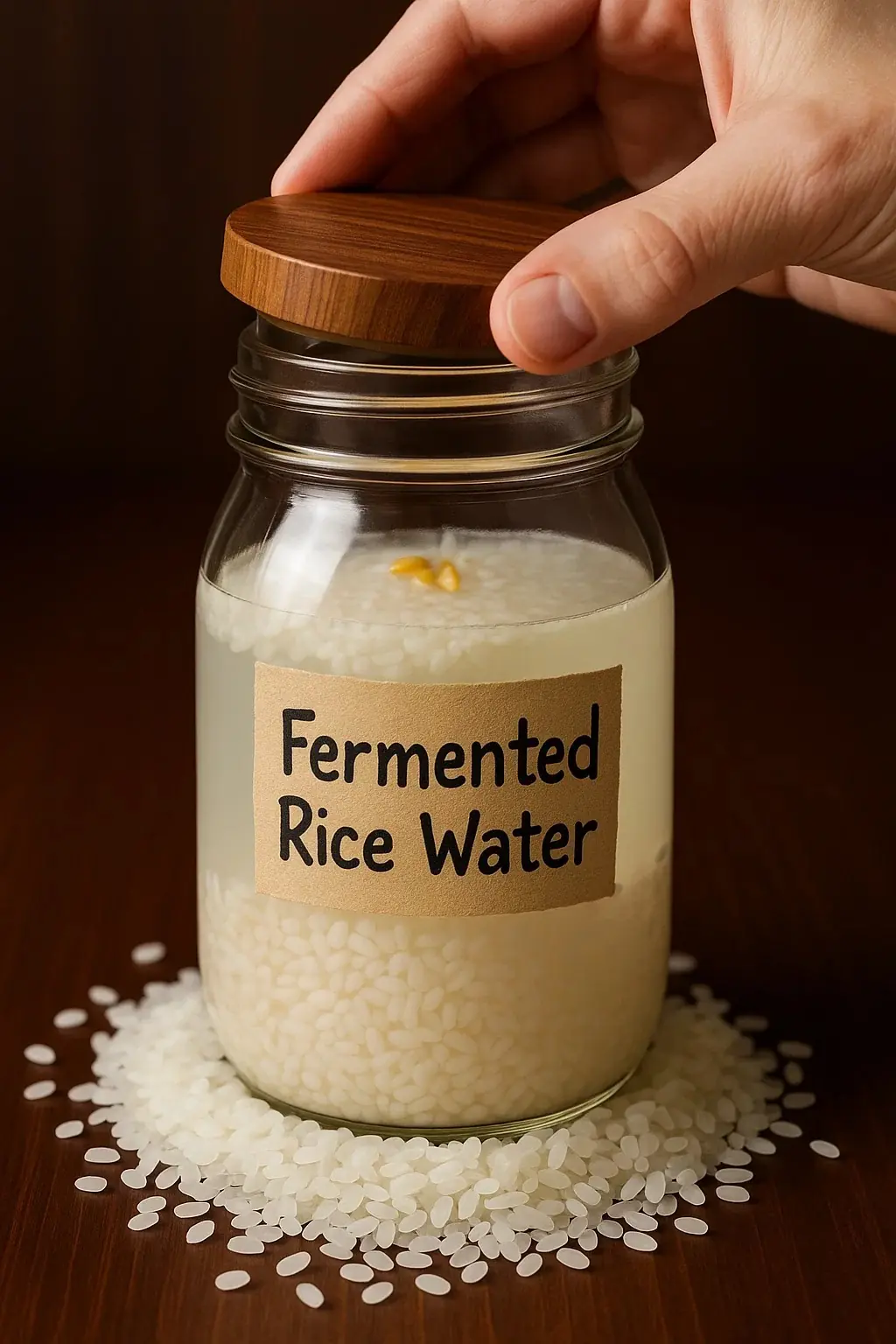
The Science Behind Fermented Rice Water
Before we get into the specifics of how to make this powerful toner, it’s essential to understand why fermented rice water is so effective for skin health. Rice water, the starchy liquid left behind after soaking or boiling rice, has been used for centuries in East Asia for its incredible beauty benefits. However, it's the fermentation process that amplifies its effects.
Fermentation and Its Benefits for Skin
Fermentation is a natural process that breaks down complex compounds into simpler, more beneficial forms. When rice water undergoes fermentation, it undergoes a transformation that enhances its skincare properties. During fermentation, beneficial microorganisms (like lactobacilli) are produced, and these microorganisms boost the content of certain beneficial compounds such as lactic acid, kojic acid, and ferulic acid, which all offer unique skin benefits.
-
Lactic Acid: Known for its exfoliating properties, lactic acid helps to slough off dead skin cells, making way for fresher, smoother skin. It also helps to fade hyperpigmentation and dark spots over time.
-
Kojic Acid: This naturally occurring acid is a known skin-lightening agent, particularly effective in reducing dark spots and uneven skin tone.
-
Ferulic Acid: As a potent antioxidant, ferulic acid protects the skin from oxidative stress, helping to fight premature aging by neutralizing free radicals.
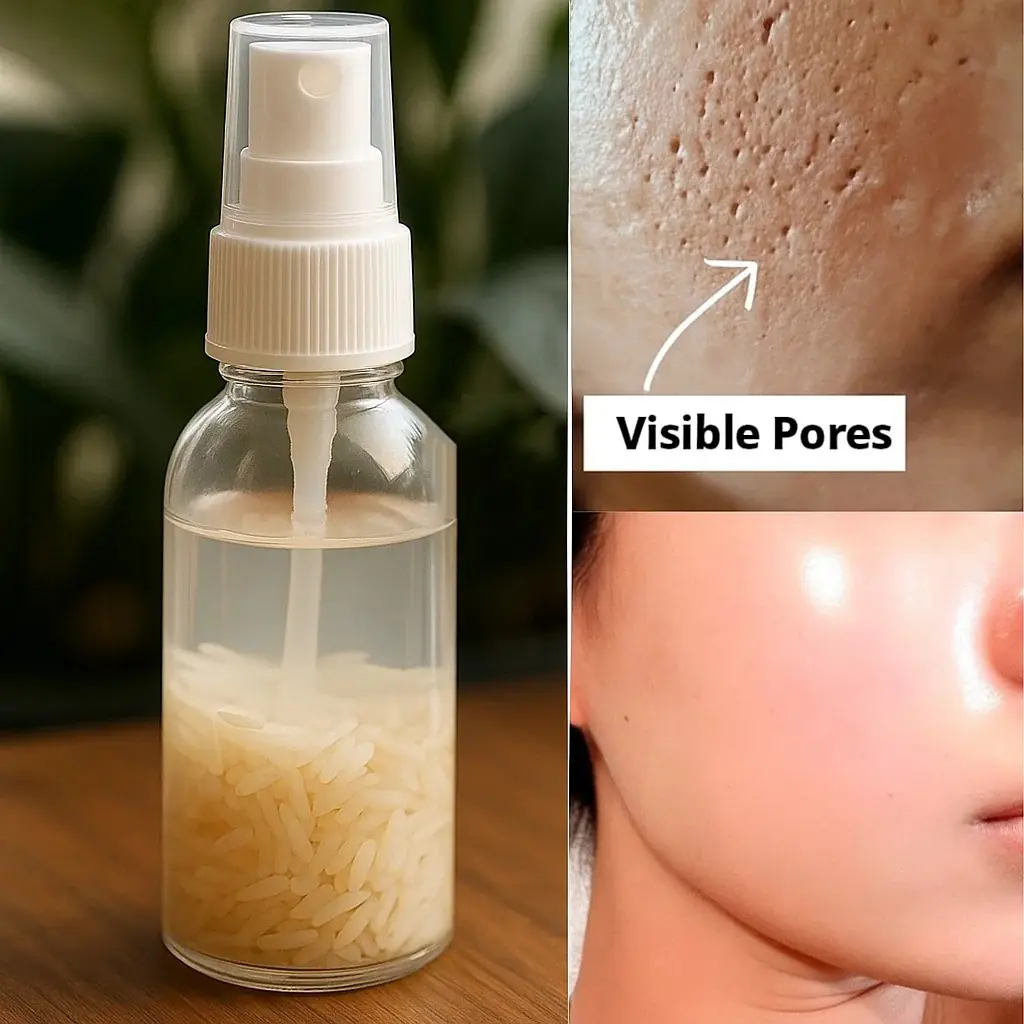
The Power of Rosehip Powder
Rosehip powder, made from the seeds of wild roses, is another powerhouse ingredient that adds immense value to your skin-care routine. It is rich in vitamin C, essential fatty acids, and antioxidants, all of which play a crucial role in skin health. Vitamin C is particularly beneficial for collagen production and skin brightening, making it ideal for those looking to fade dark spots and improve skin elasticity.
Benefits of Rosehip Powder:
- Brightens Skin: Rosehip powder’s high vitamin C content inhibits melanin production, which can help lighten dark spots and hyperpigmentation over time.
- Anti-Aging: Rich in antioxidants, it protects the skin from environmental damage and helps reduce the appearance of fine lines and wrinkles by boosting collagen production.
- Soothes Skin: The essential fatty acids in rosehip powder are known for their anti-inflammatory properties, making it excellent for calming irritated or sensitive skin.
- Promotes Skin Repair: The healing properties of rosehip powder help repair damaged skin, improving the overall texture and tone.
By adding rosehip powder to the fermented rice water toner, you provide a one-two punch for skin brightening and rejuvenation.
The Role of Tea Tree Essential Oil
Tea tree oil is an essential oil known for its antimicrobial and anti-inflammatory properties. It has long been a favorite in skincare due to its ability to combat acne and balance oil production. When added to a toner, tea tree oil helps clear pores, reduce blemishes, and prevent future breakouts.
Benefits of Tea Tree Oil:
- Antibacterial: Tea tree oil helps cleanse the skin by fighting acne-causing bacteria, making it great for acne-prone skin.
- Pore-Clearing: It helps keep pores clear of excess oil and dirt, reducing the appearance of large pores and preventing blockages that lead to acne.
- Soothing: Tea tree oil soothes irritated or inflamed skin, reducing redness and swelling from breakouts or other skin conditions.
- Balancing: It helps regulate the skin’s oil production, making it beneficial for both dry and oily skin types.
Adding tea tree oil to the fermented rice water toner enhances its ability to prevent acne and keep your skin clear and smooth, all while reducing the risk of future skin issues.
How to Make the Fermented Rice Water Toner
Now that you understand the importance of each ingredient and how they work together, let’s dive into how to prepare this simple yet powerful toner. This recipe is easy to follow and uses ingredients you can find at most health food stores or in your kitchen.
Ingredients: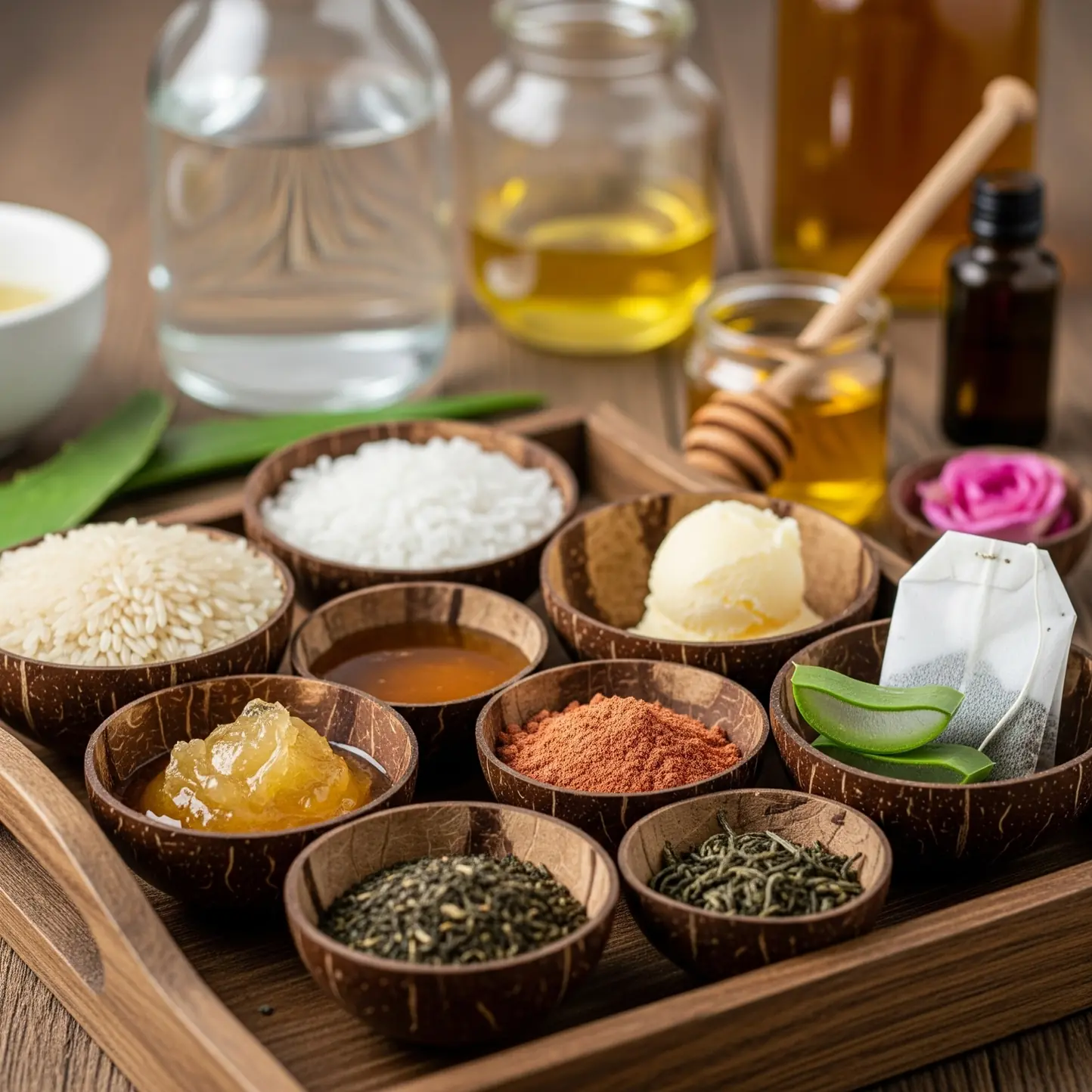
- 1 cup organic white or brown rice (you can also use rice water from leftover rice)
- 2 cups filtered water
- 1 teaspoon raw honey (prebiotic support for fermentation)
- 1 tablespoon pure aloe vera gel (soothing hydrator)
- 1 green tea bag (or 1 teaspoon loose green tea leaves)
- 1 teaspoon rosehip powder (natural vitamin C source)
- 5 drops tea tree essential oil (antibacterial, pore-clearing)
- Optional: 2–3 drops lavender or rose absolute (delicate fragrance)
Instructions:
- Rinse the Rice:
Place the rice in a fine-mesh strainer and rinse under cold running water until the water runs clear. This removes surface starch and impurities from the rice. - First Soak:
Transfer the clean rice into a sanitized glass jar. Pour in 2 cups of filtered water, cover the jar with a breathable cloth, and let it sit at room temperature for 30 minutes. - Strain and Collect:
Pour the rice-water mixture through a fine strainer into a clean bowl, discarding the rice grains or reserving them for a separate face mask. - Prepare Fermentation Base:
Stir 1 teaspoon of raw honey into the collected rice water until fully dissolved. Honey acts as a prebiotic, feeding beneficial yeasts and lactic acid bacteria to kick-start fermentation. - Ferment:
Re-cover the jar with the cloth lid and allow the mixture to ferment for 24–48 hours at around 25–30°C (room temperature). You’ll know it’s ready when the liquid smells mildly tangy and tiny bubbles appear. - Add Active Boosters:
After fermentation, strain the liquid into a fresh container. While still slightly warm, whisk in aloe vera gel, cooled green tea infusion (steep bag or leaves in ½ cup hot water for 5 minutes, then cool), rosehip powder, and tea tree essential oil. - Final Filtration & Storage:
Filter the toner through a coffee filter or fine cloth to remove any sediment. Transfer into a sterilized dark-glass bottle, seal tightly, and refrigerate. Use within two weeks for optimal freshness and potency.
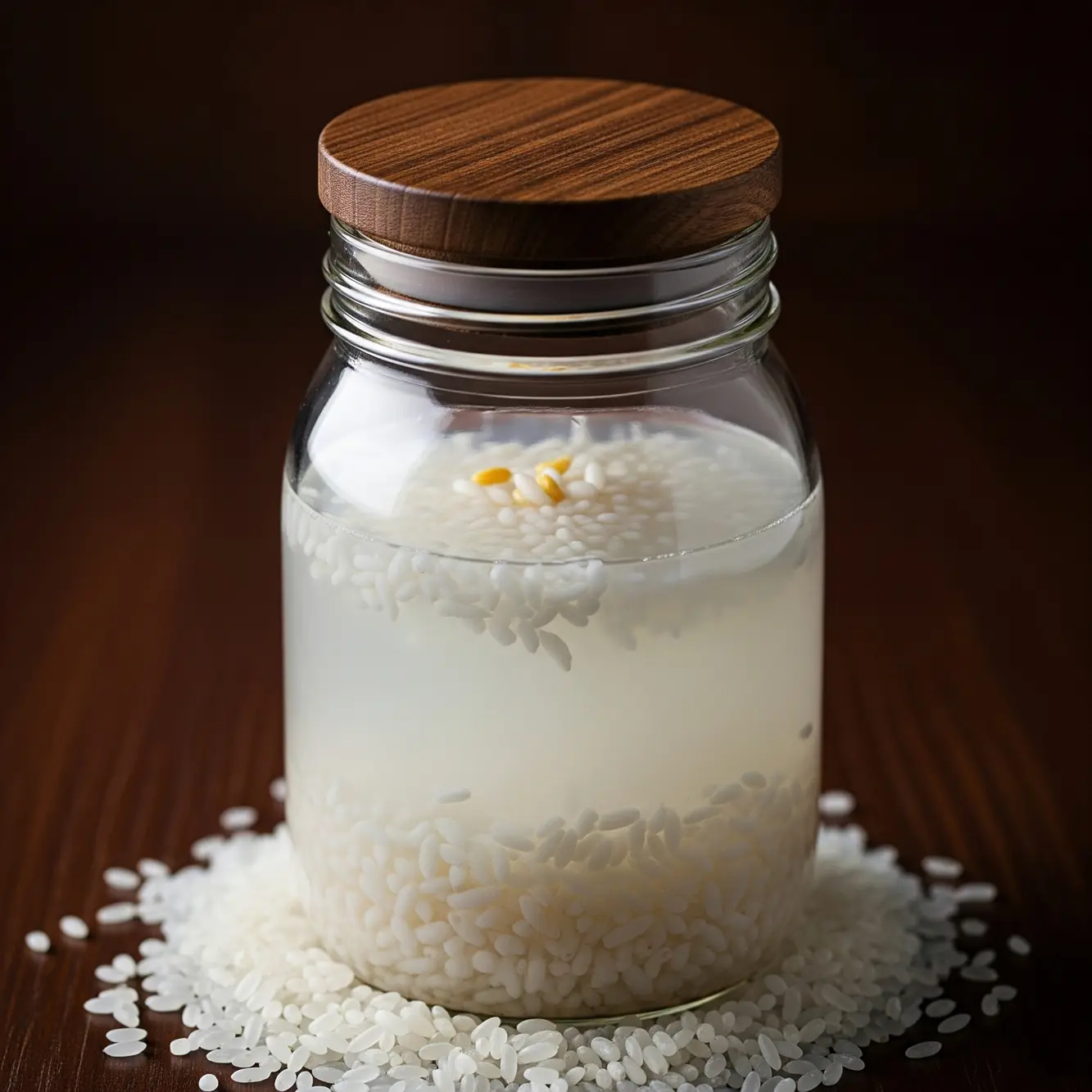
How to Use the Fermented Rice Water Toner
- Patch Test: Apply a small amount to your inner wrist or behind the ear. Wait 24 hours to ensure no irritation develops.
- Application: After cleansing, soak a cotton pad with toner and gently sweep across face and neck - avoid the delicate eye area.
- Frequency: Begin with once daily (evening), then increase to morning and evening if well tolerated.
- Layering: Allow toner to fully absorb before following with your favorite serum and moisturizer.
Benefits of Fermented Rice Water Toner
Brightening & Spot Fading
The combination of rice, rosehip powder, and lemon juice helps lighten dark spots, even skin tone, and brighten your complexion. Fermented rice water contains natural acids, including lactic and kojic acids, that help fade pigmentation over time.
Gentle Exfoliation & Pore Refinement
Fermented rice water, combined with rosehip powder and aloe vera, gently exfoliates the skin, removing dead skin cells while shrinking pores and leaving the skin looking smooth and refreshed.
Hydration & Soothing
Aloe vera and green tea provide lasting moisture, while honey and tea tree oil calm inflammation and reduce redness. Together, they create a perfect balance of hydration and soothing properties for a healthier complexion.
Antioxidant Defense
The antioxidants in green tea, rice, and rosehip protect the skin from environmental damage and help slow down the signs of aging, providing your skin with the nutrients it needs to thrive.
Antibacterial & pH Balancing
Tea tree essential oil’s antimicrobial properties help prevent breakouts and reduce acne, while the toner’s mildly acidic pH helps maintain the skin's natural barrier function.
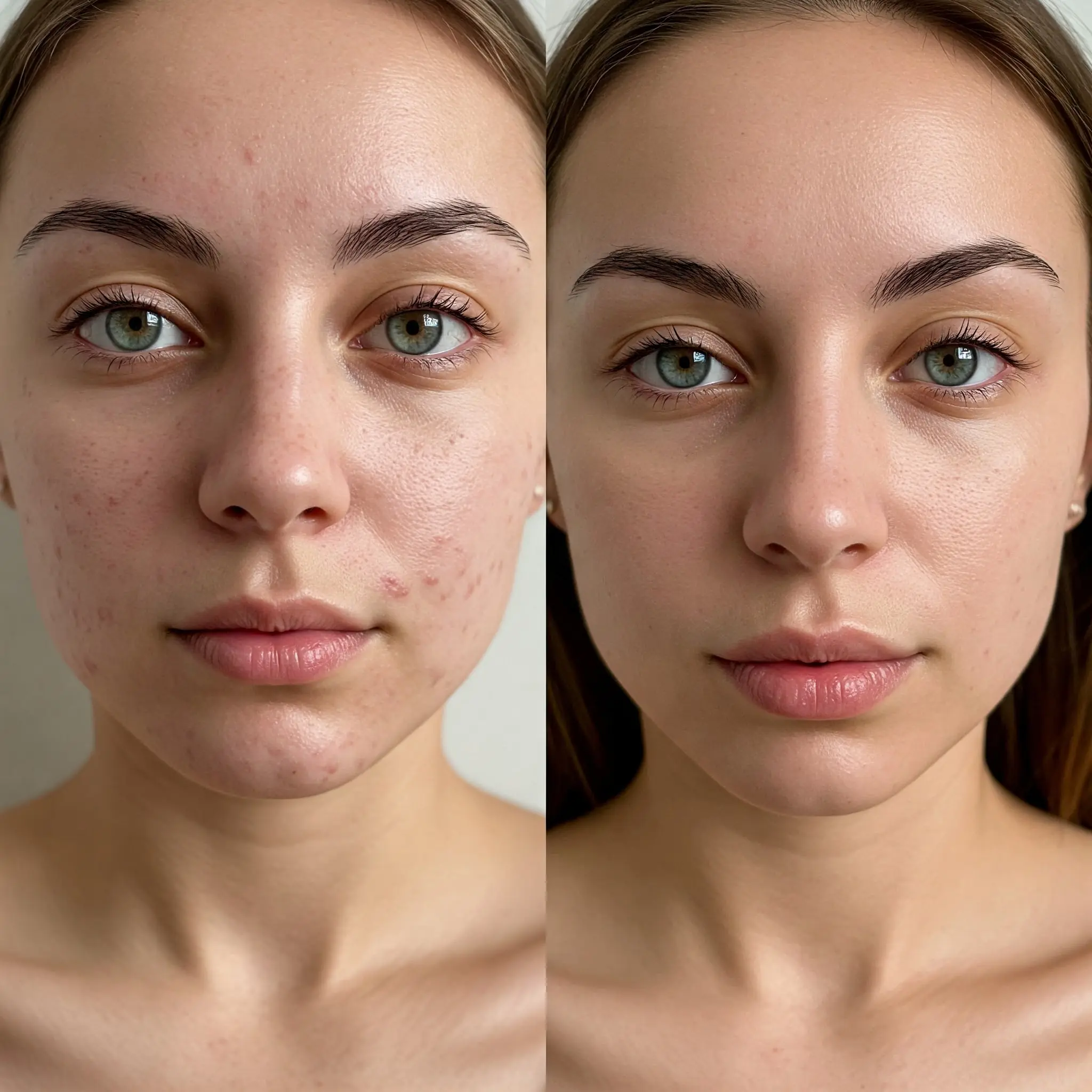
Final Thoughts
The Fermented Rice Water Toner is an easy-to-make, natural solution for tackling common skin concerns like dark spots, enlarged pores, and uneven skin tone. By incorporating this DIY toner into your skincare routine, you can enjoy the benefits of traditional beauty practices backed by modern scientific understanding. With consistency and dedication, this toner can help you achieve a brighter, smoother, and more youthful complexion.
The best part? It’s an affordable, customizable, and safe solution for everyone, from teenagers dealing with acne to adults aiming to preserve youthful skin. Try it today, and let the power of fermentation transform your skin naturally!
News in the same category

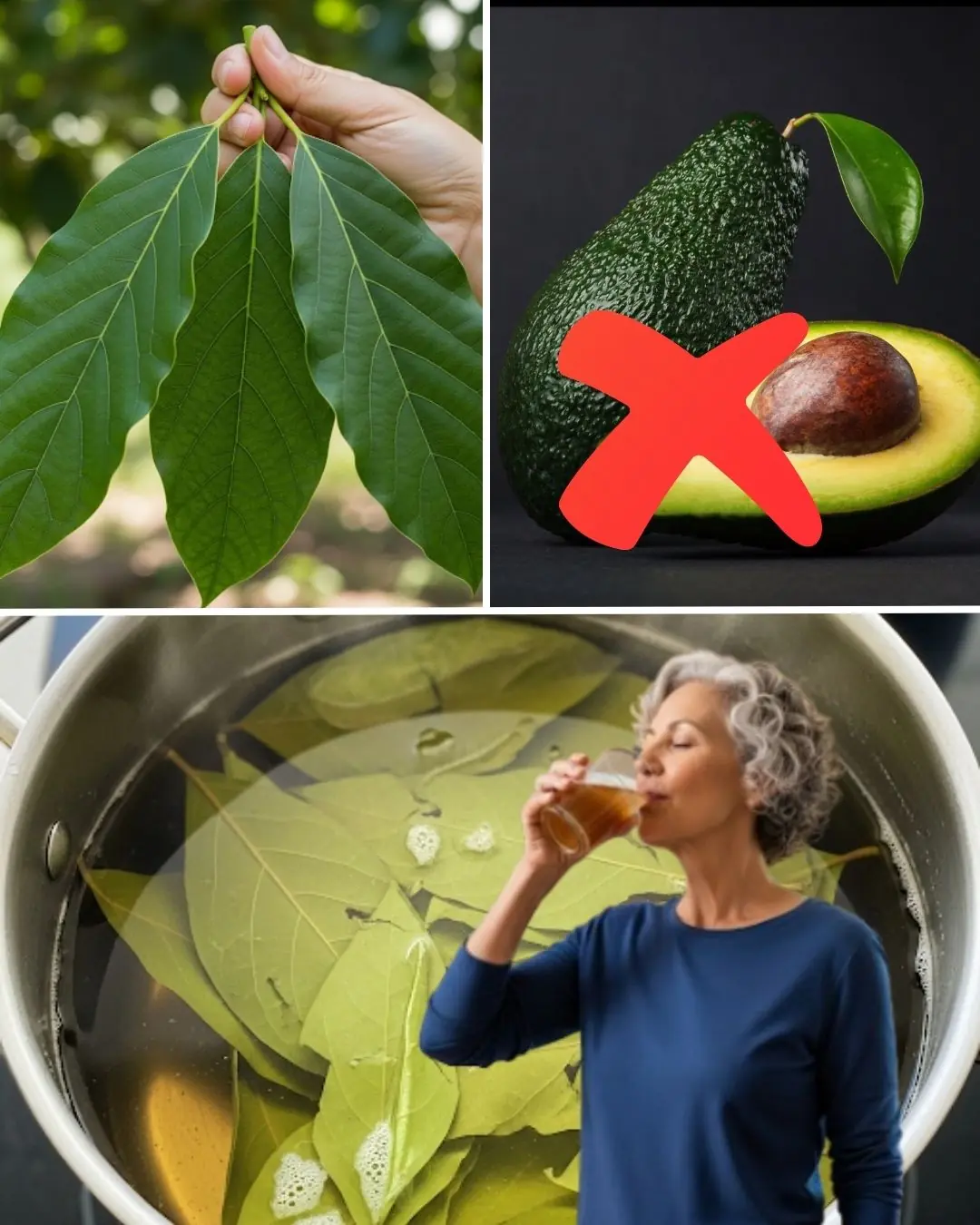
🌿 30 Remarkable Benefits of Avocado Leaves

🌿 Natural Collagen Boost: Garlic Remedy for Smoother Skin

✨ Brighten Your Smile Naturally: A Simple DIY Teeth Whitening Remedy
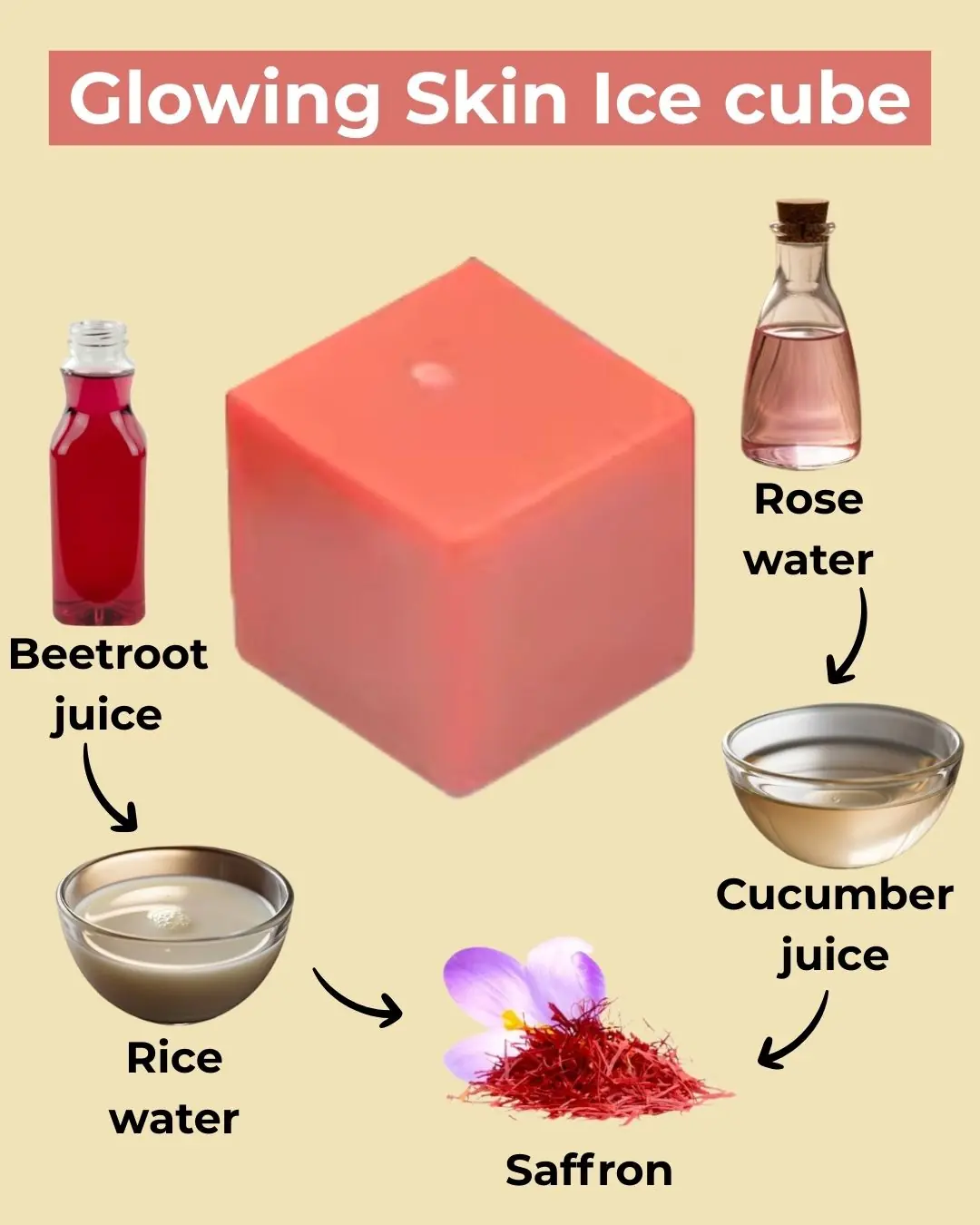
🌟 DIY Collagen Ice Cubes for Radiant Skin

🌿 3 Natural Home Remedies to Remove Skin Tags Safely

Six Powerful Foods to Improve Sperm Health and Boost Male Fertility Naturally
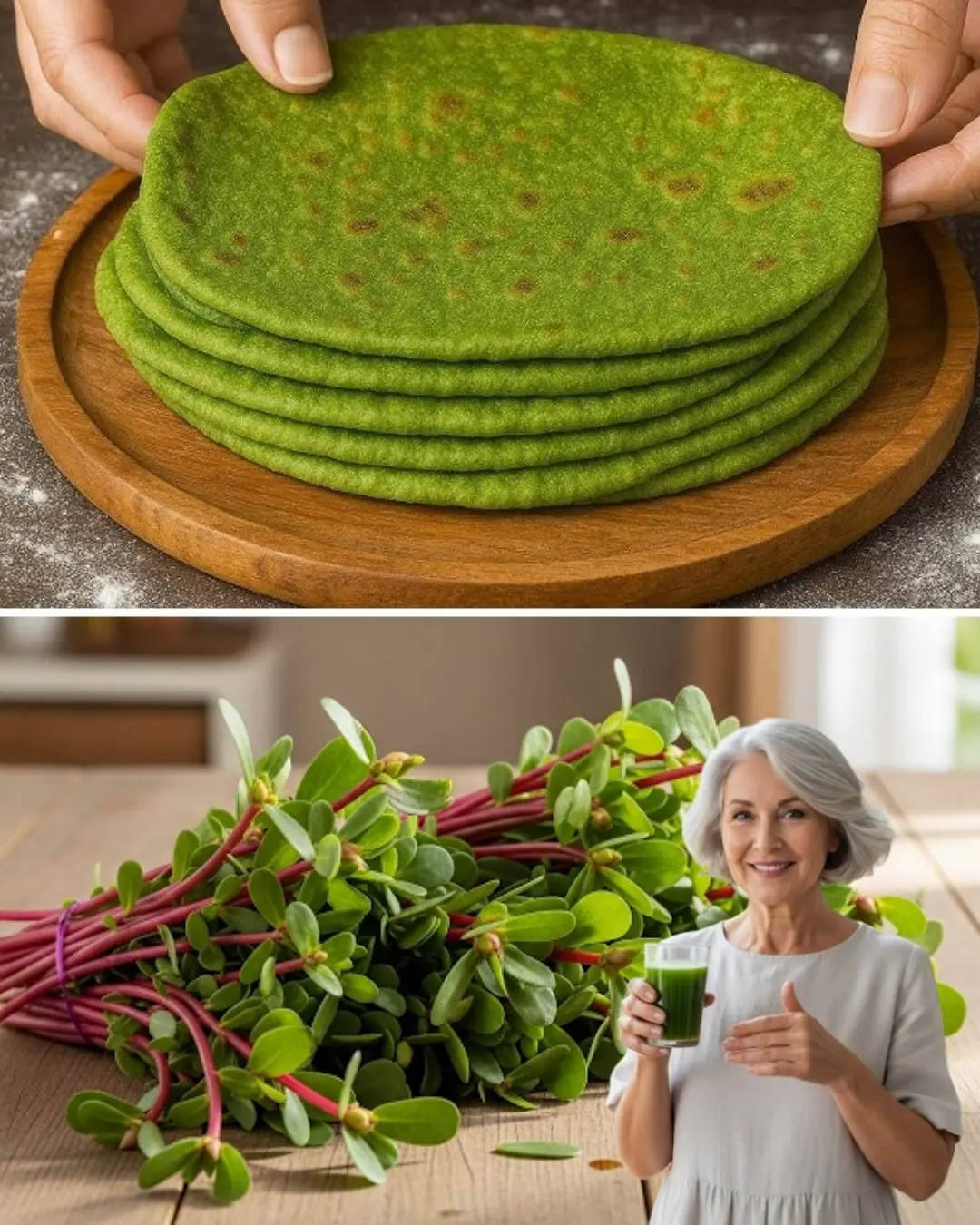
30 Powerful Reasons You Should Stop Ignoring Purslane
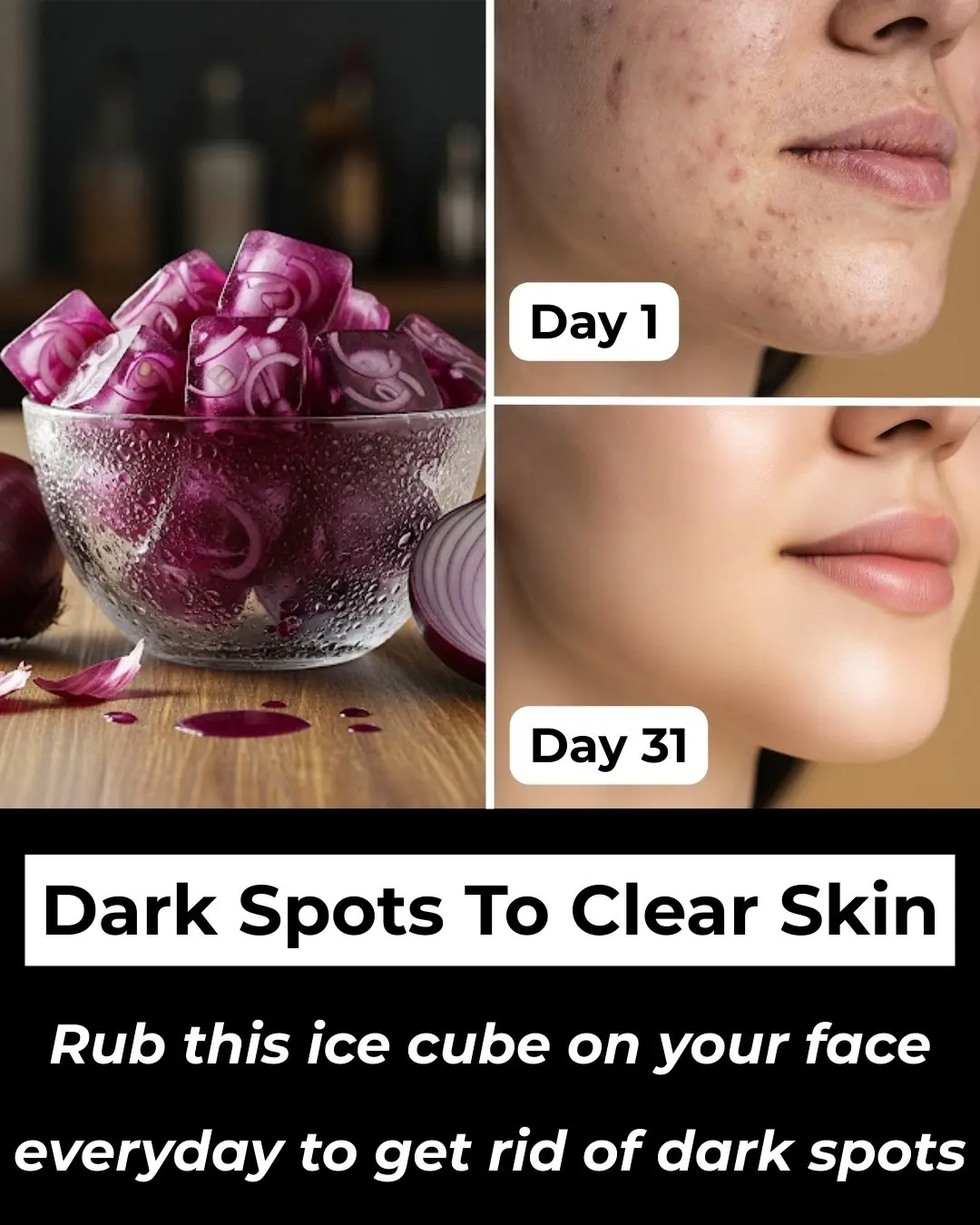
Onion Ice Cubes: Clear Dark Spots and Achieve Radiant Skin

Okra Chia Detox Drink : Reverse Your Skin Age 1 Glass At A Time

Coconut Oil for Hair Growth – Add this in your Hair Oil
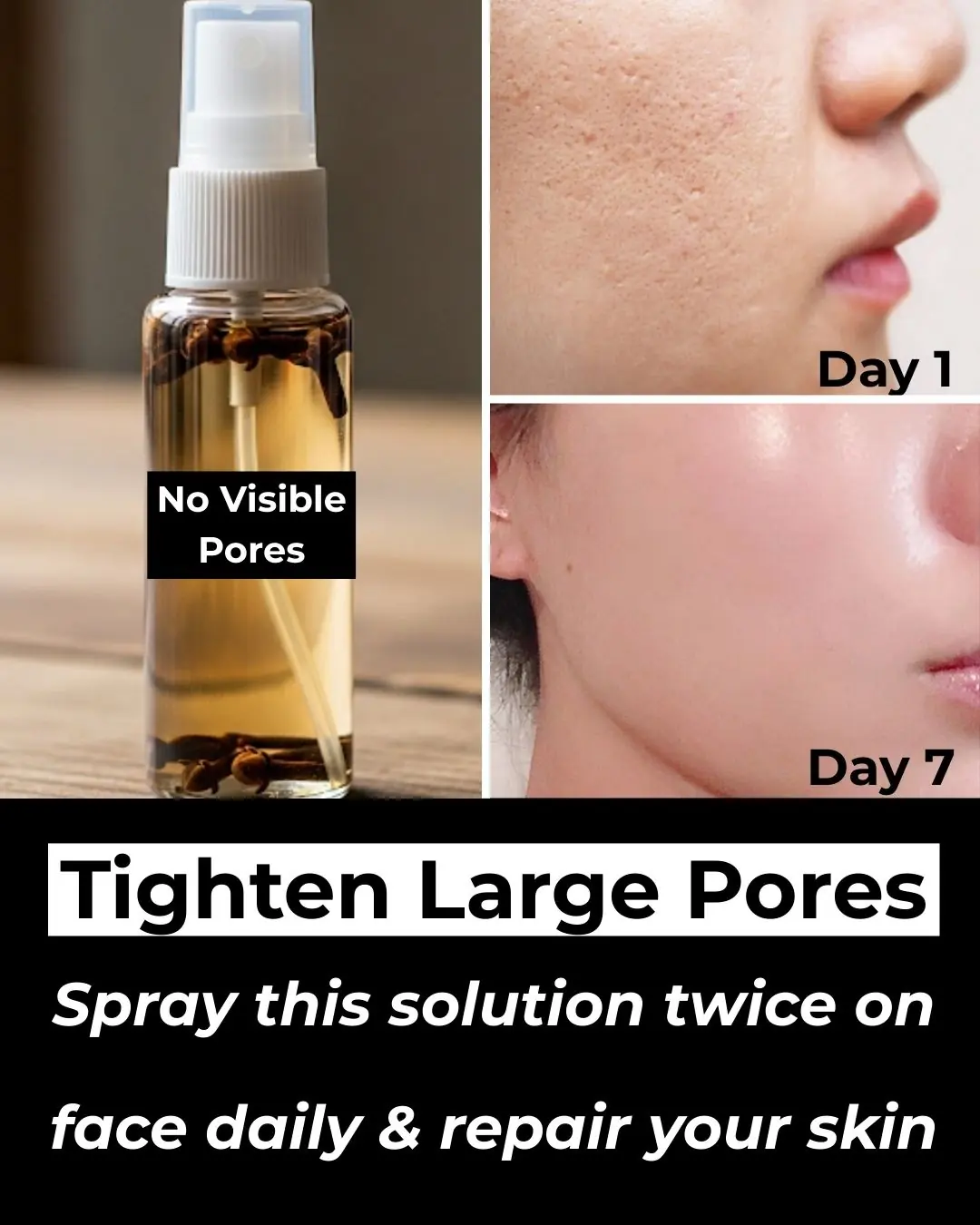
Clove benefits for Skin – Clove Oil, Clove Gel & Clove ice cubes
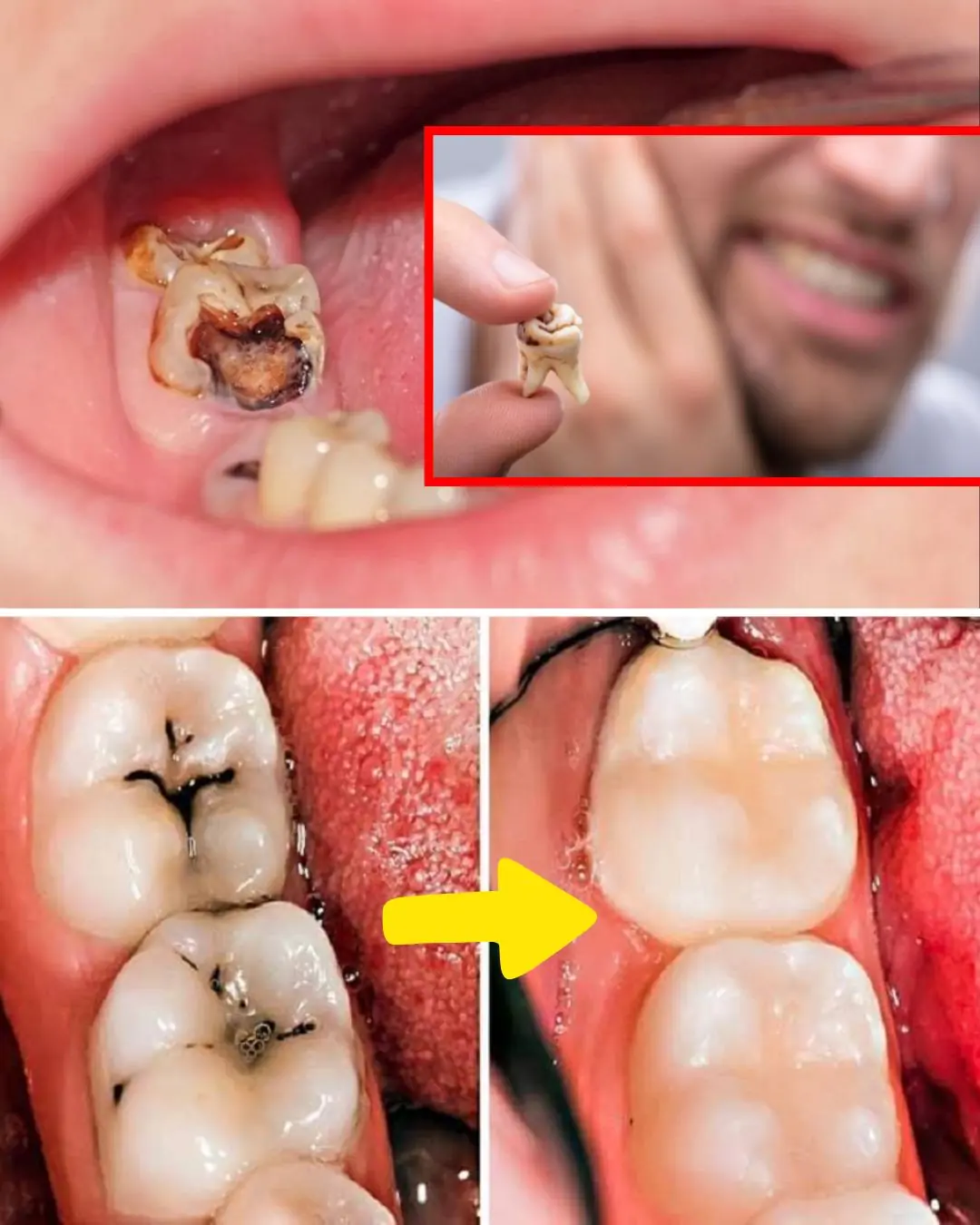
🦷 Understanding Tooth Decay and Remineralization

🧄 Health Benefits of Eating Raw Garlic Daily

🌿 Stinging Nettle (Urtica dioica): 17 Remarkable Benefits You Should Know
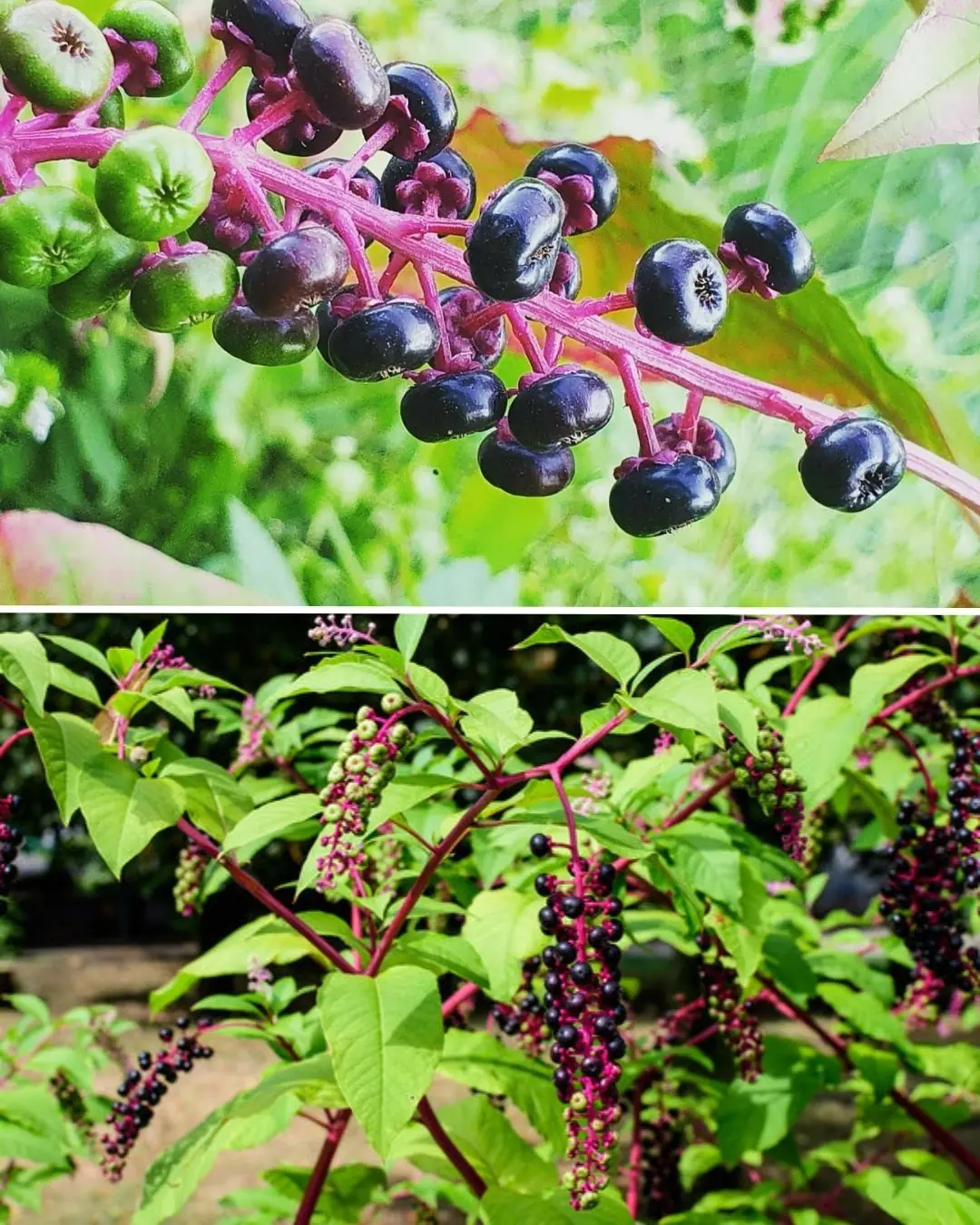
Pokeweed (Phytolacca americana): A Toxic Plant to Avoid

Aloe Vera and Clove Toner: A Natural Remedy for Aging Signs
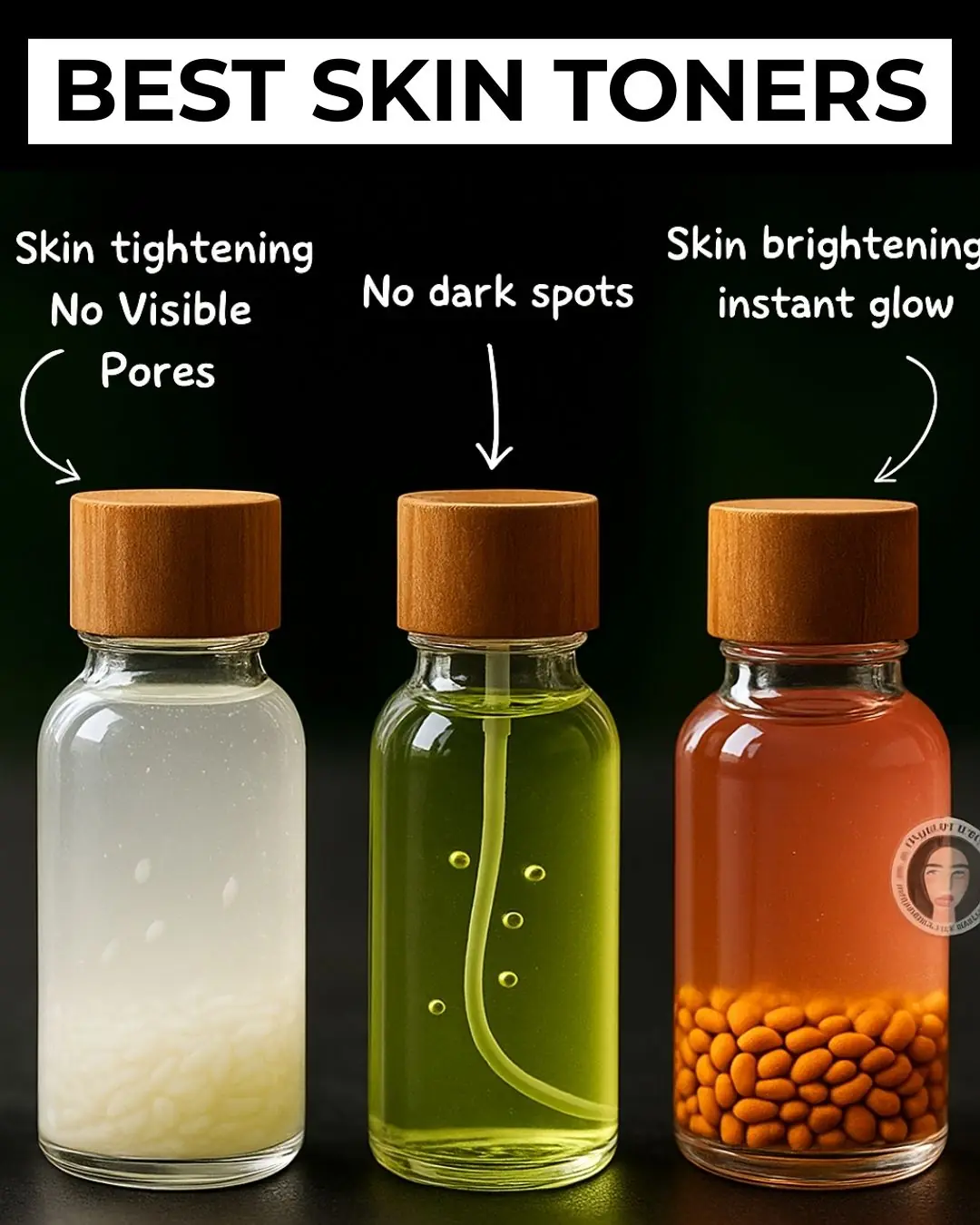
5 Homemade Skin Toners for Glowing Skin, Acne, and Dark Spots
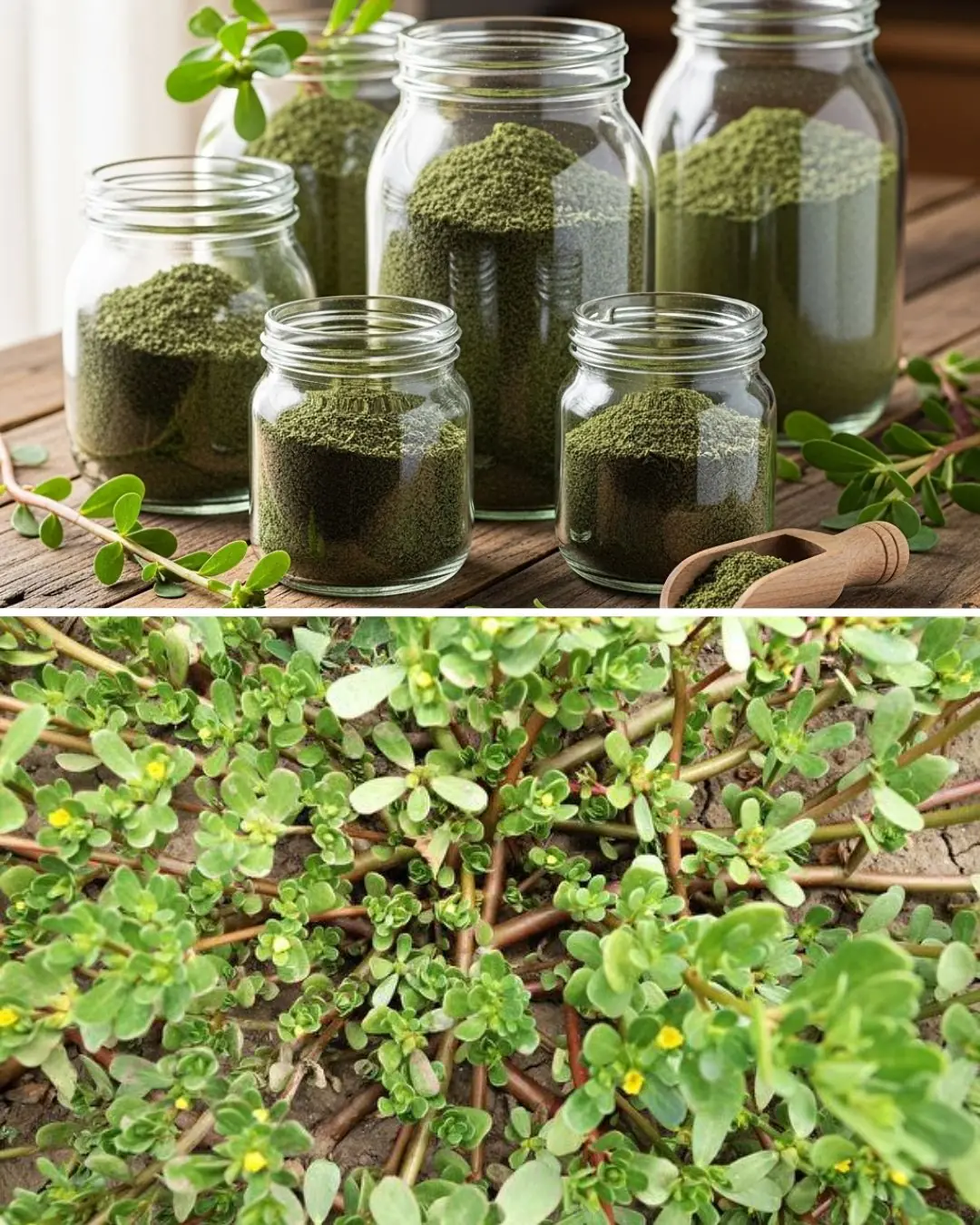
30+ Enriched Reasons to Embrace Purslane (Portulaca oleracea)

12 Enhanced Benefits of Bull Thistle Root & How to Use It Naturally
News Post

Doctors uncover knife unknowingly lodged in man's chest for 8 years in insane discovery

Elon Musk unveils new AI project that could recreate Microsoft’s entire business operations

Arkansas woman accidentally discovers $27,000 dollars after kicking 'spiderweb' in park

Exactly how virus carried by 'Frankenstein' rabbits growing black 'tentacles' spreads following urgent warning from experts

The Elders' Teachings Are Not Wrong: "The Kitchen Should Not Face Three Directions, and the Bed Should Not Be Placed in Three Locations"

5 Types of Plants That Snakes Love: If You Plant Them in Front of Your House, Remove Them Immediately Before It’s Too Late

If Your Non-Stick Pan Has Lost Its Coating, Don’t Rush to Throw It Away. Follow This Trick to Turn Your Old Pan Into a Like-New One.

Cooking Oil Often Splashes When Frying? Add This Ingredient to the Pan, and You Won't Have to Worry About Oil Splattering or Sticking to the Pan

Is It Correct to Close the Door When Using the Air Conditioner? Here Are 5 Mistakes That Can Cause Your Electricity Meter to Increase 2-3 Times
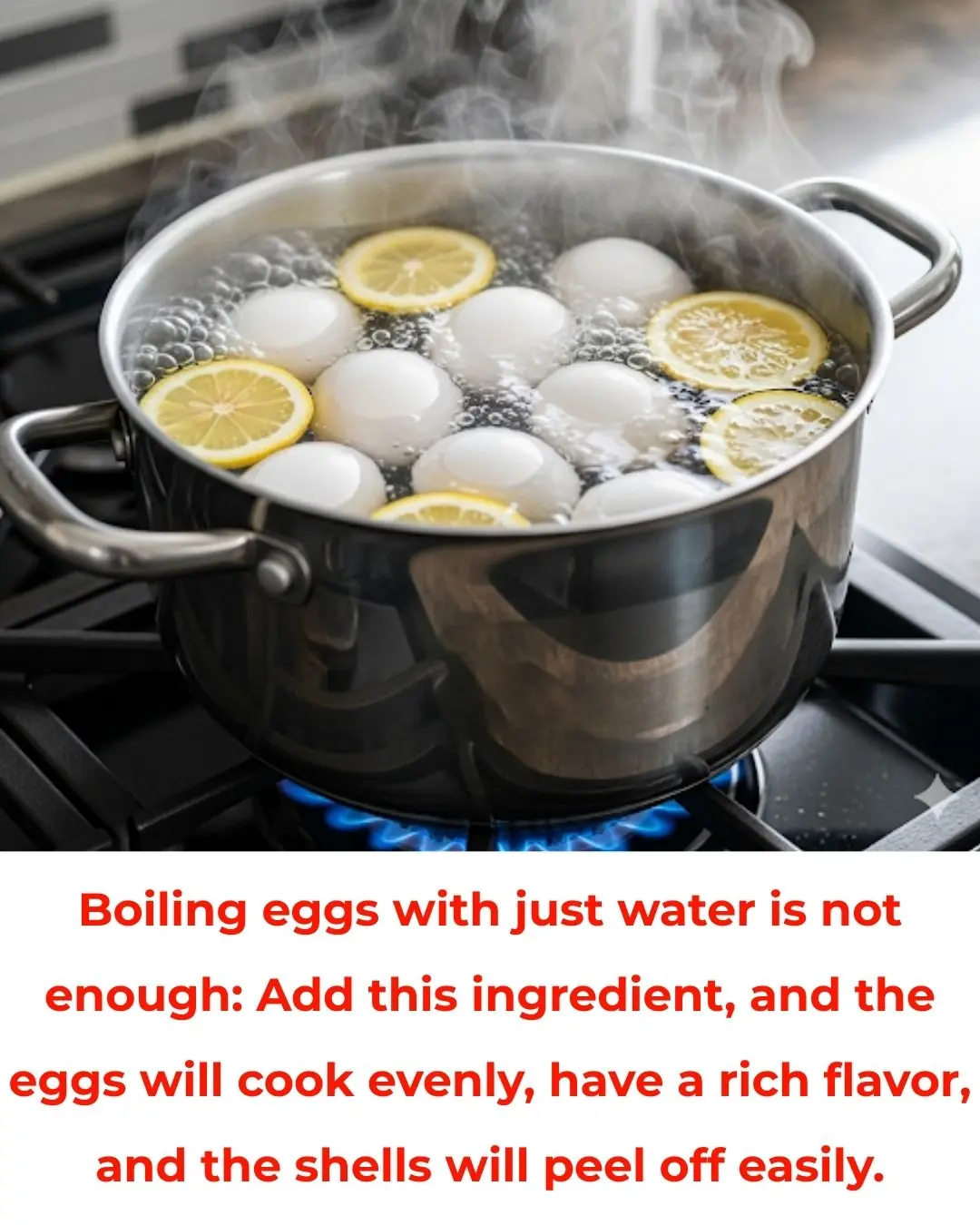
Boiling Eggs with Just Water is Not Enough: Add This Ingredient, and the Eggs Will Cook Evenly, Have a Rich Flavor, and the Shells Will Peel Off Easily

Do Not Ignore These 10 Warning Signs That Your Kidneys May Be In Danger

Buying Meat and Just Placing It Directly in the Freezer for Storage is a Mistake: The Shop Owner Shares a Trick to Keep Meat 'Fresh for a Whole Year' Without Spoiling
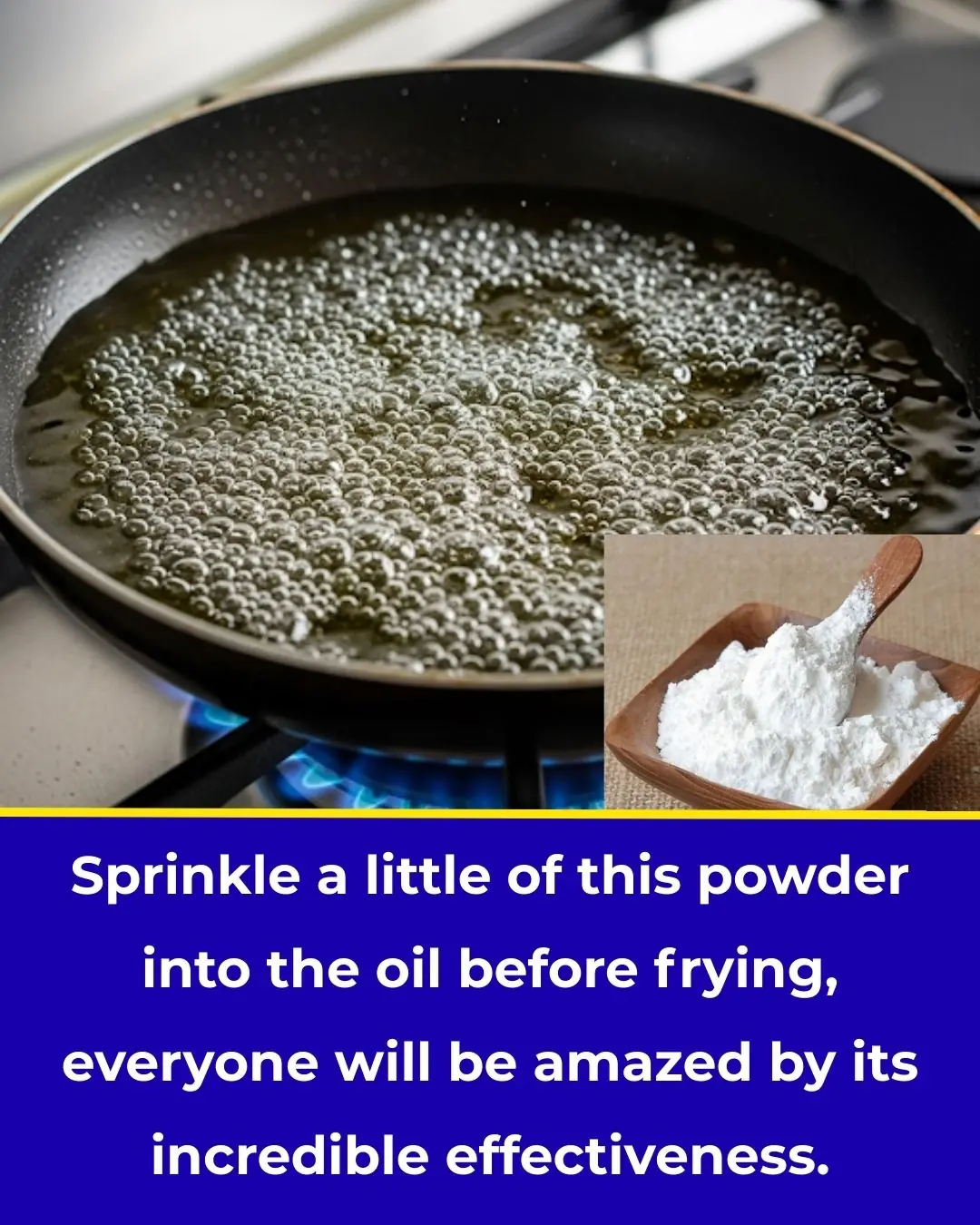
Sprinkle a Little of This Powder into the Oil Before Frying, Everyone Will Be Amazed by Its Incredible Effectiveness

If Your Body Suddenly Jerks While Falling Asleep, This Is What It Means

What Is This Button In The Car For

How Long Cooked Food Can Stay In The Refrigerator

If You Eat Eggs Every Day

Vegetables To Clean Your Arteries And Prevent Heart Attack

Pain in This Part of the Body Could Indicate Cancer Cells are 'Awakening' – Both Men and Women Shouldn't Ignore It
